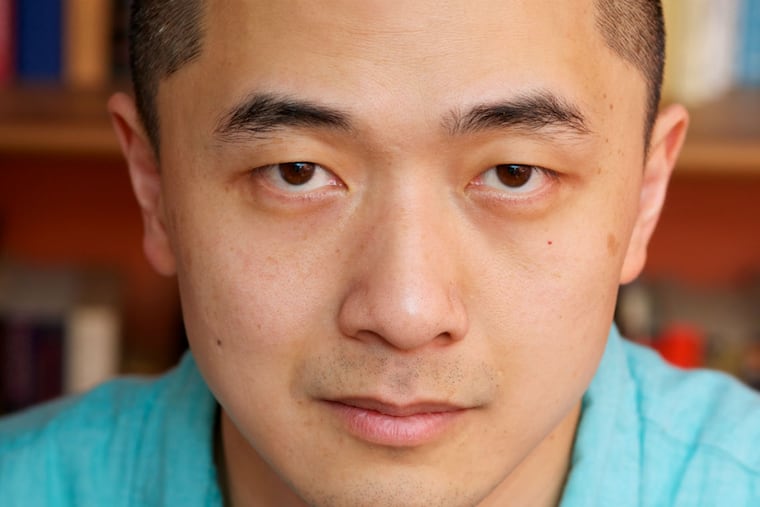Ken Liu's 'Paper Menagerie': A dazzling, readable collection
To borrow one of his titles, Ken Liu stirs "All the Flavors" into The Paper Menagerie and Other Stories: sci-fi extrapolation, ages-old fantasy, sweet romance, bitter tyranny, and trickster surprises.

By Ken Liu
Saga. 464 pp. $24.99
nolead ends nolead begins
Reviewed by
Jim Higgins
To borrow one of his titles, Ken Liu stirs "All the Flavors" into
The Paper Menagerie and Other Stories
: sci-fi extrapolation, ages-old fantasy, sweet romance, bitter tyranny, and trickster surprises.
To call his book one of the best collections of speculative fiction I've ever read is simply to begin my praise. Liu's book compiles brilliant stories written in several different, overlapping modes, a technically dazzling collection of compulsively readable narratives, presenting characters with agonizing moral dilemmas and never forgetting the heart.
The title story, "The Paper Menagerie," is the first work of fiction to sweep the Hugo, Nebula, and World Fantasy Awards, and with good reason. A boy in Connecticut has a Chinese mother who makes amazing origami animals for him. "I didn't know this at the time, but Mom's kind was special. She breathed into them so that they shared her breath, and thus moved with her life. This was her magic," he remembers. But as he grows older, he wants to fit in with his American peers, so he rejects her origami and her old-world ways. He's an adult now, and she's gone, but he discovers she left him one more surprise. You might want tissues nearby when you read this story.
"The Literomancer" also depicts a culture clash between American and Chinese values. Lilly, a Kennedy-era American girl, is lonely living in Taiwan and snubbed by other American base kids until she strikes up a friendship with an elderly Chinese man who tells fortunes based on the characters in their names and other words. In the picaresque "All the Flavors," another American girl, Lily, makes friends with Chinese gold miners who have arrived in their 19th-century Idaho town. She hears their wonderful tales; through their industry and cleverness, they defeat prejudice and evil at every turn. Liu adds a brief epilogue to this and many other stories, citing the real-world documents and sources that feed his fiction.
Several stories invoke the pain of and atrocities committed during the Japanese occupation of parts of China in the 1930s, none more poignantly than "The Man Who Ended History: A Documentary." After the discovery of pairs of subatomic particles that are quantum-entangled, physicist Akemi Kirino and historian Evan Wei devise a way to eyewitness the past - but each instance of doing so destroys the possibility of others' observing those moments.
This review originally appeared in the Milwaukee Journal Sentinel.